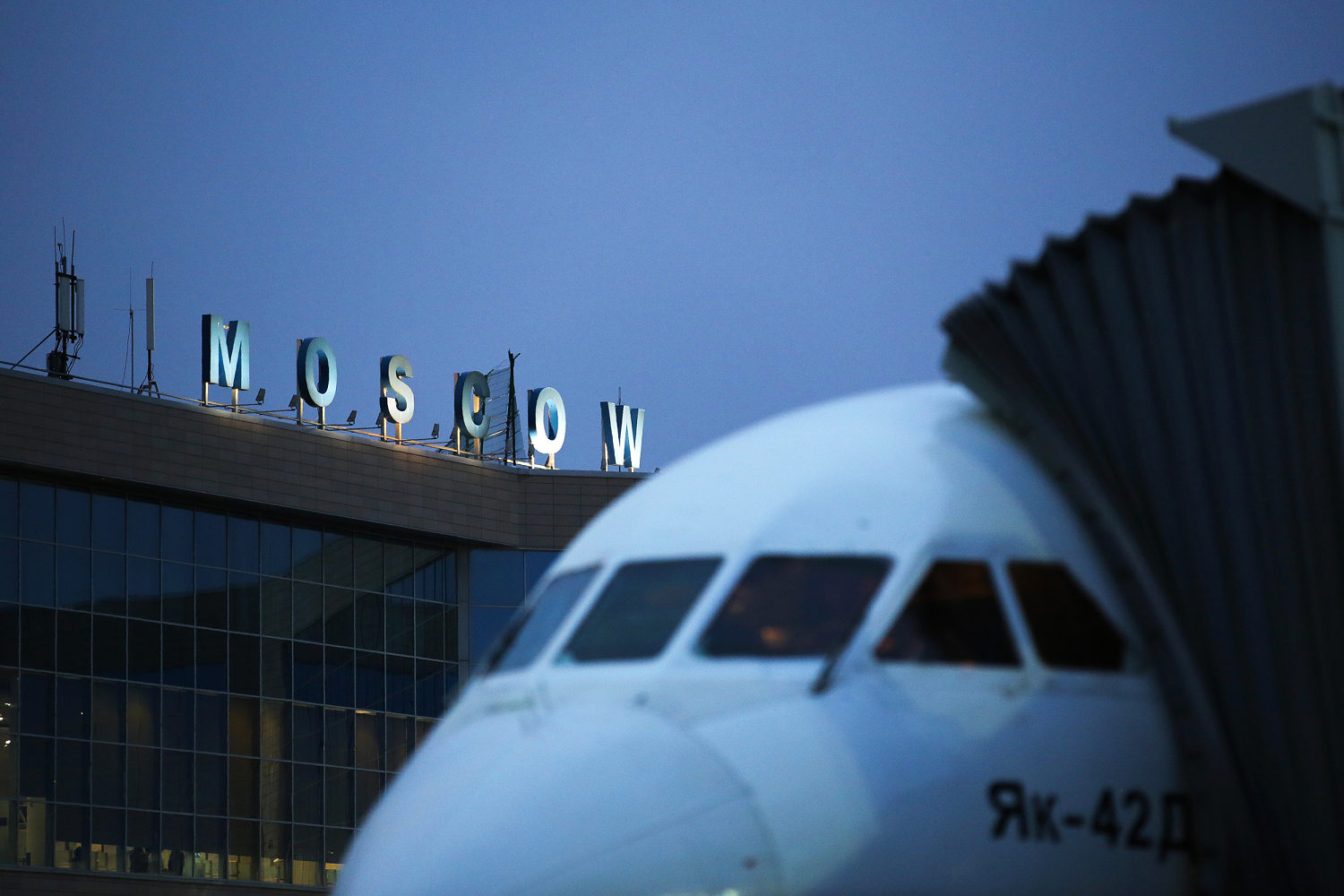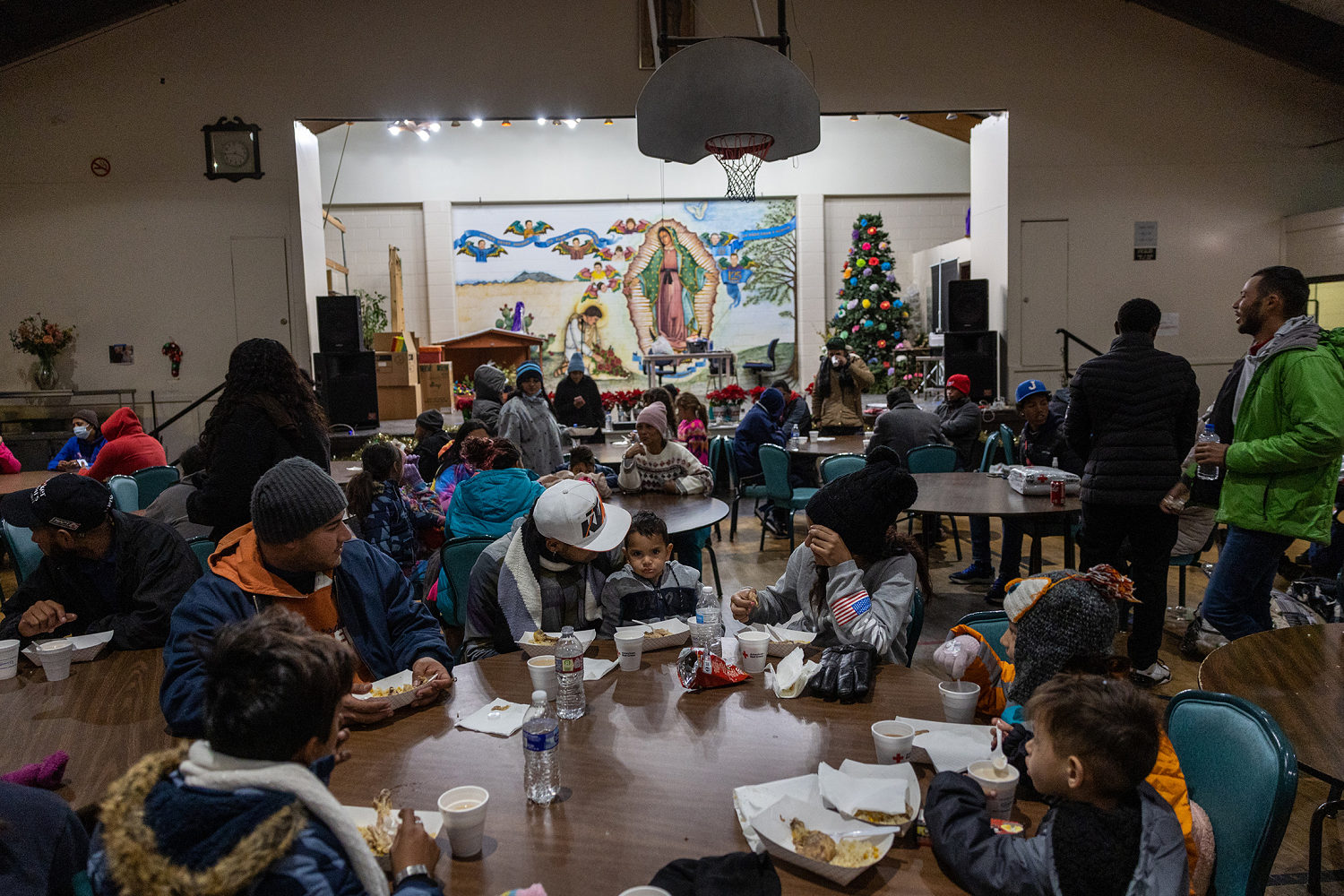Can lessons learned from airport security guide Trump’s immigration strategy?

Rewriting the nation’s immigration policies sits atop President-elect Trump’s to-do list. He has promised to round up undocumented immigrants (estimated to be more than 11 million people) and deport them (likely back to their home countries). He will also need to control the influx of undocumented immigrants, which means that building a southern border wall appears back on the table.
Perhaps there are lessons to be learned from airport security that can offer some insights into whether Trump’s plans are feasible, and if it will solve the nation’s undocumented immigration challenges.
Airport security in the United States is overseen by the Transportation Security Administration (TSA). They employ a comprehensive system to keep threat items and threatening people from entering the air system. Though some argue that airport security is more theater than substance, the fact that there has not been a successful air system security event for more than 23 years is noteworthy.
Three strategies make the TSA system effective.
Multiple layers
The TSA does not rely exclusively on a single barrier to keep the air system secure. Any one layer may be breached on any given day. But to collectively breach all the layers simultaneously is extremely difficult.
Integrating technologies with people
The TSA uses a mix of technologies and procedures to harden the air system. Relying exclusively on technology or on people would be both ineffective and inefficient. Using a mix of the two contributes to the security layers that make the air system difficult to breach. For example, before people show up for their flight, the TSA uses Secure Flight to ensure that the travelers are eligible to fly, their identity can be confirmed and they are subjected to the appropriate physical screening procedures.
Uncertainty
The TSA maintains a level of uncertainty around its system so that bad actors are never quite sure what to expect. If the security procedures become too predictable, bad actors can plan accordingly and find pathways to enter the air system.
These same strategies can be used in securing the borders and reducing the number of people who enter the country illegally.
An effective approach should include multiple layers that must be circumvented to gain entry to the nation and employ a universal registration program with zero tolerance for those who do not follow the necessary procedures. It also means periodically changing the procedures that make it difficult to game or circumvent the procedures in place.
An enormous benefit of the TSA procedures is deterrence. By hardening the air system as much as it does, it keeps people away from even considering entering the air system, or risking being discovered.
Trump’s proposed mass deportation of undocumented immigrants, even if it is never fully implemented, may serve as an effective deterrent to keep such people from attempting to either enter the country today or for those already here and choosing to stay, temporarily hiding in the country. The fear of being apprehended by Immigration and Customs Enforcement may even end up serving as the most effective mechanism for undocumented immigrants leaving on their own volition. Much will depend on the conditions that they face here versus the environment they would face back in their home country.
Yet with airport security, there are unintended consequences. By hardening the air system, bad actors are deterred from even attempting to breach airport security. If they remain intent in doing so, they will be deflected to other venues.
The flip side of this is that if undocumented working immigrants were to all magically disappear, the roles they serve in different industries would need to be filled by documented immigrants or citizens. The problem is that many of these jobs involve long hours and hard labor, including work in agriculture, construction and the hospitality industries. Without such labor, many of these jobs may not get done, independent of the wages paid, resulting in shortages in the nation’s food supply chains and construction projects, as well as higher prices to consumers.
The proposal to deport all undocumented immigrants may have some deterrence benefits but offers limited practical value. What is needed is a mechanism that will allow undocumented immigrants to remain in the nation, performing the many services that they now provide, and filling the jobs that most citizens do not want.
Much like airport security checkpoints, open borders are not the solution. At the same time, the current immigrant status must form the initial conditions for any new immigration policy moving forward.
A review of the bipartisan immigration bill that got killed in the House earlier this year contained some of the same elements that Trump is proposing. The key difference is that Trump, rather than Joe Biden, will get credit for it.
When the lives and well-being of people are being put at risk for political gain, we must examine the motives of the elected officials and whether they are upholding their responsibilities to serve for the good of all Americans.
Immigration reforms that are implementable and enforceable are needed. What remains a challenge is that not all immigrants are the same in how they contribute to our society and economy. A one-size-fits-all approach is certainly not the answer — something the TSA understood when it launched PreCheck.
Perhaps the new administration will heed such experience before embarking on immigration reform policies that will ultimately affect not just undocumented immigrants but every citizen. As a nation of immigrants, anything less would be a disservice to them all.
Sheldon H. Jacobson, Ph.D., is a professor in computer science in the Grainger College of Engineering at the University of Illinois Urbana-Champaign. He used his expertise in risk-based analytics to address problems in public policy.
Topics
-

Moscow's 4 airports closed temporarily for unspecified security reasons
MOSCOW — Russian authorities on Thursday closed all four of Moscow’s airports, plus a fifth one in a city about 100 miles southwest of the country’s capital, citing unspecified safety concerns.NBC News - 19h -

How Trump can reset the US-Qatar relationship
When it comes to Qatar, Trump shouldn’t pick up where Biden left off.The Hill - 1d -

Morning Report: Trump's big immigration plans face big roadblocks
In today’s issue: President-elect Trump’s ambitious immigration agenda faces significant roadblocks. Trump wants to close the southern border, carry out the largest deportation effort in history ...The Hill - 1d -

Mikel Arteta: coach with ‘British DNA’ who learned from McLeish and Moyes
Five years since the start of his Arsenal tenure, two of his former managers look at how his playing career shaped him. David Moyes wasn’t 100% sure when Mikel Arteta arrived at Everton. “He was a ...The Guardian - 2d -

How mass migration is being weaponized — a lesson from Poland
President-elect Trump's return to the White House is expected to bring a return to border policies that emphasize security and U.S. sovereignty, as the Biden-Harris administration's record on ...The Hill - 2d -
Playoff clinching scenarios: Who can secure a postseason berth, division title?
Here's what to know about the clinching scenarios for Week 17.ESPN - 2d -

Can Trump hold his disparate coalition together?
A Catch-22 of politics is the fact that once you start governing and making decisions, you’re almost guaranteed to alienate some of the people who put you in office in the first place.The Hill - 2d -

Immigrants prepare action plans after Trump says he will allow ICE to act in schools, churches and hospitals
Immigrant's rights advocates are helping vulnerable families prepare plans of action in case an undocumented relative is suddenly detained or deported.NBC News - 3d -

5 Lessons From Starting 5 Businesses
No matter the industry, these lessons can help you with your business growth.Inc. - 3d
More from The Hill
-

Bolton on UN reform: Stefanik has 'her work cut out for her'
The Hill - 6h -

Map: Where minimum wage is — and isn't — increasing in 2025
The Hill - 4d -

Morning Report — Chilly with a chance of shutdown
The Hill - 6d -

Jeffries says bipartisan funding deal is ‘best path,’ but doesn’t rule out thinner bill
The Hill - Dec. 19 -

4 dead in New Hampshire from suspected carbon monoxide poisoning
The Hill - 8h